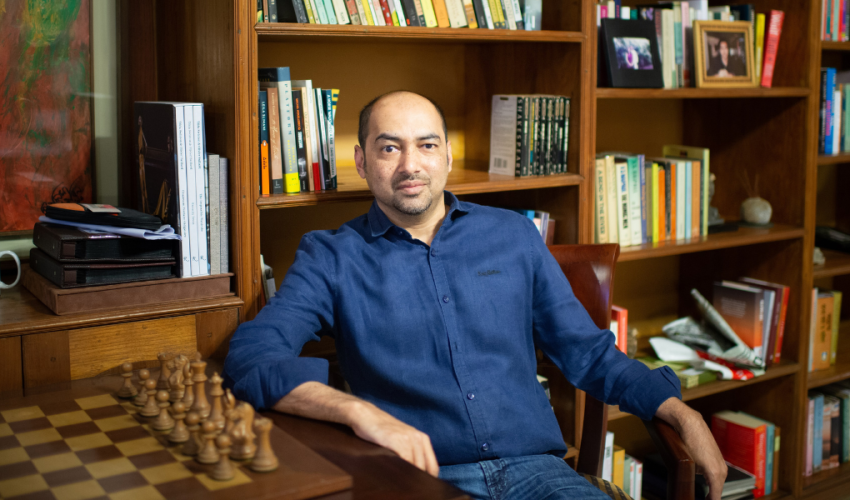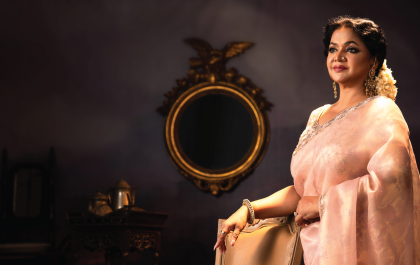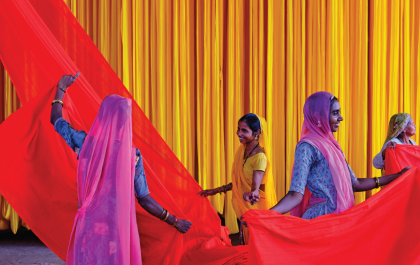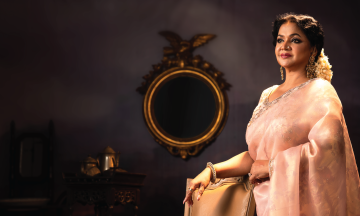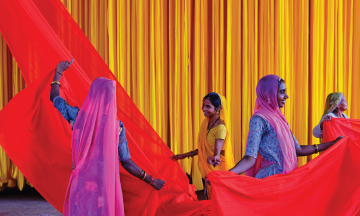Dr Kazi Anis Ahmed shares his ideas on the continued pursuit of creativity
By Sabrina Fatma Ahmad
He’s co-founded a top-tier private university, a literary journal, what was once hailed as the fastest-growing English-language daily newspaper in Bangladesh, and an international tea brand. And if that’s not already an impressive resume (and quite a full plate), he’s one of the directors of the Dhaka Lit Fest, which is shaping up to be one of the most happening literary festivals in South Asia. And he has three books out. In other words, Dr Kazi Anis Ahmed is one scary smart individual. Even though he was right in the eye of the hurricane that is the DLF season, MWB was fortunate to be able to catch him for a quick interview.
What gets you out of bed these days?
New ideas! For stories and for projects.
What does a typical work day look like for you?
Mornings are for meetings. Afternoons are for writing. Evenings I love to play football or go swimming with my 10-year-old son. Night times I read and sometimes binge on Netflix.
You’re the publisher of an English newspaper and an online Bangla news platform. You founded a literary magazine, and a university, and are one of the directors of this massive festival. Safe to say, you place great importance in creating arenas for discourse. Where does this come from?
I have always felt excited about ideas, learning, and debate. Ever since I was a child. I was geeky enough to think that the so-called life of the mind was the most exciting kind of life to have.
The pandemic was hard on everyone, but really hit the education sector hard, as we had teachers trying to adapt to new teaching tools and students having to rely on online learning, which hasn’t been perfected here yet. What steps do you think should be taken to make our education system more resilient?
We need to take mental health seriously. Not only reduce any stigma around it, but even think that it’s something you need only when you’re clinically depressed or in some other manifest way distressed. Life is enormously stressful for young people today, and we need to give them the tools and the support to cope with that. So, I’d say we need to invest more in student affairs and counseling. But it’s not just about throwing money at it, it’s about learning to value the whole person and the totality of their being and experience.
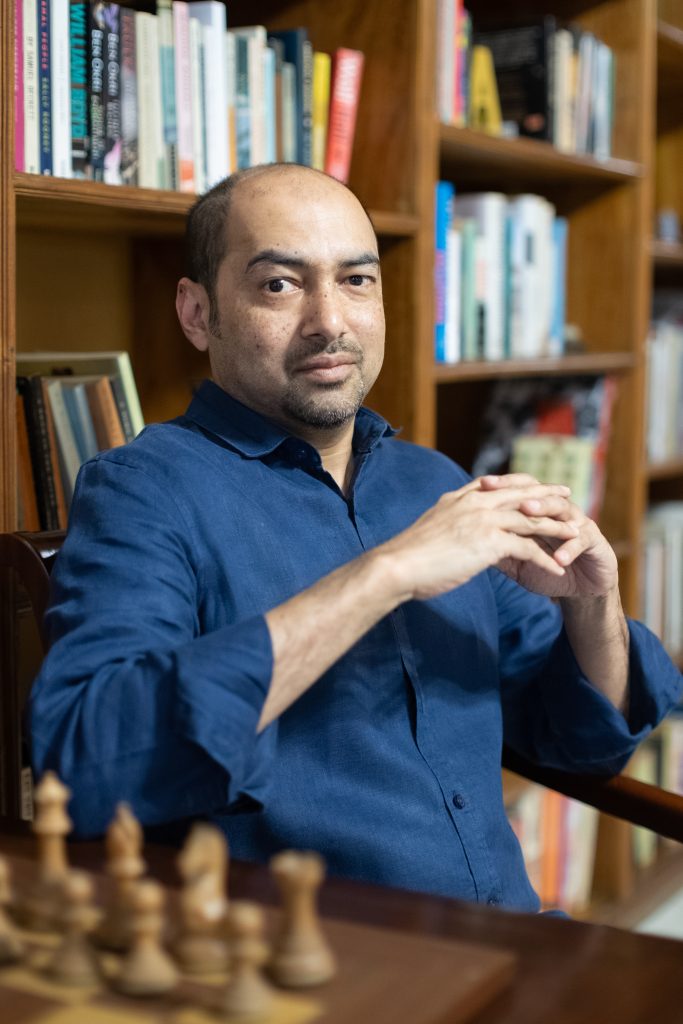
In this fast-paced life, with all the things that you do, how do you make time (and brain space) for your creative pursuits?
Over the years, I have learned to do two things quite well: compartmentalize and swift gear-changes! I think more people have to do that these days even if they are not involved in such a wide range of fields or number of projects as I am.
What is your strategy for beating writer’s block?
I suffered from it for a while in my 30s because I was over-conscious about offending people in my life. As a writer, I had to get over that and it’s still a work in progress. So, anyone feeling a block should try to examine where it’s coming from. It’s usually not due to any lack of ideas; it’s more often because someone or something within them is acting as a daunting censor.
What did you enjoy reading as a kid?
I was a voracious and indiscriminate reader. As a child, I read a lot of comics, of course, then moved onto Bangla classics, like Feluda, Teni Da, but also more literary fare like Sarat Chandra and Bibhutibhushan. In English, I was a big Enid Blyton fan and transitioned into more literary fare by way of Maugham and Maupassant.
What’s the last thing you read that really affected you?
In fiction, three writers have struck me the most with the power of their visions and style: Denis Johnson, Paul Beatty, and Paul de Witt.
Who are your own literary influences?
They have changed over time, of course. I admired the Latin American magic realists a lot in my youth. But some titans remain abiding in their hold over me: Tolstoy, Bellow, Naipaul.
Can we get a little idea of what to expect from your upcoming book?
It’s about the Bangladeshi owner of a wild game restaurant in NY. He falls into debt to a thuggish Russian and goes to extraordinary lengths, concocting ever more questionable menus, for private dinners of the super-rich to get out of his debt. The plan goes horribly wrong, of course.
Whether it’s making global consumers fall in love with Bangladeshi tea, building the next generation of leaders and ambassadors, or wowing the international community with our local culture, you’ve been trying to build a brand for Bangladesh for years. What is the brand story you want to tell?
Bangladesh is a great example that no one should ever be written off. We have surprised the world in many respects. And while we can do a lot better too, especially around freedoms and tolerance, we still have shown tremendous resilience, inventiveness, and humanity and that’s worth celebrating.
Photos: Mahmud Hossain Opu




